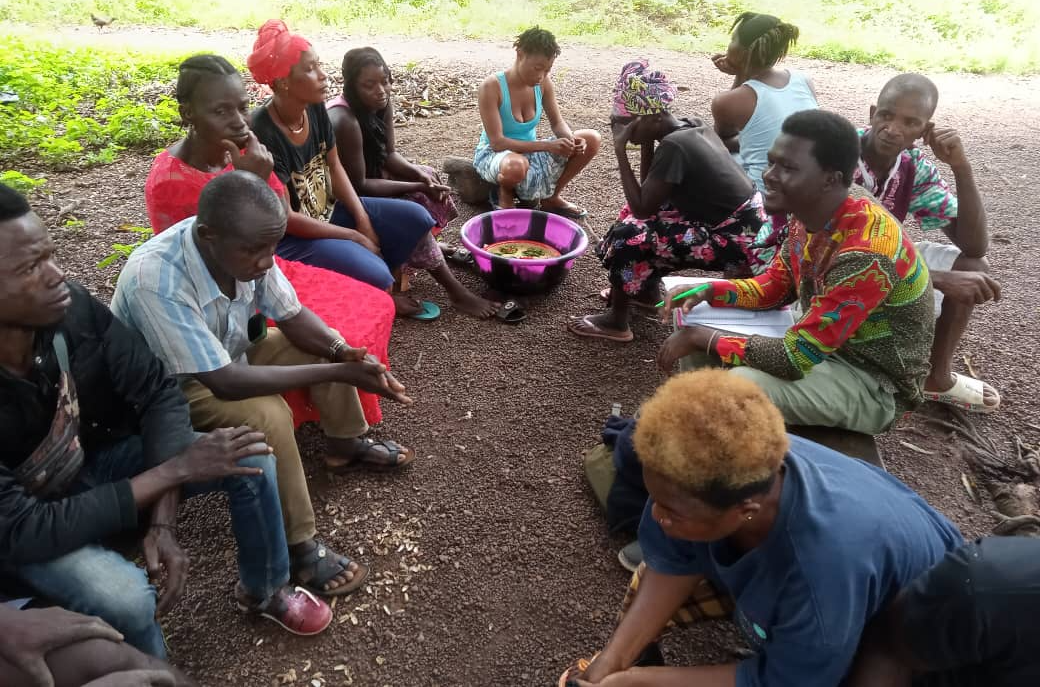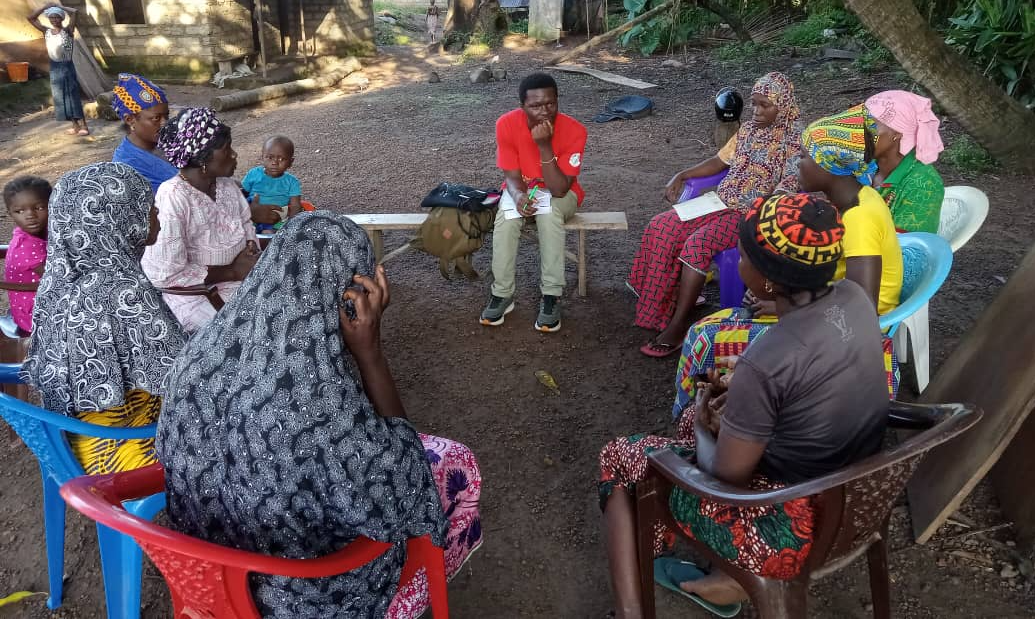Researching Women’s Access to Land at the University of Makeni, Sierra Leone
Author: Bankolay Theodore Turay (Centre for Housing and Sustainable Development, University of Lagos)
My one-month stay at the Department of Development Studies, University of Makeni, Sierra Leone, provided both a homecoming and a valuable opportunity to conduct a pilot study for my PhD research. My research investigates "Women's Access to Land for Sustainable Livelihood: Evaluating the Tenure Conflict in Peri-urban Settlements in Sierra Leone." Collaborating with like-minded academics at the University of Makeni enabled me to refine my data instruments and gather pilot data from communities in Mabolleh and Yainkasa (Bombali district) and Grafton and Tokeh (Western area rural district). Additionally, I was able to access resources on women's land rights from civil society and non-governmental organizations – resources unavailable at my home institution.
Home coming nostalgia
Leaving Sierra Leone for an extended period while my family remained was difficult. Seeing my children again after my absence stirred a mix of joy, guilt, and the pressure of having only a short time together. My daughter, 7, and my son, 14, are still in school, and I felt the weight of all I had missed. Balancing my research commitments in distant communities with the longing for my family created a whirlwind of emotions.
I had missed countless moments: family gatherings, my children's birthdays, their games, and even simple bedtime stories. The anxiety of catching up was overwhelming. At first, I struggled to fully embrace either my research or family time. Ultimately, I found a way to bridge the divide by including my children in some of my fieldwork. I explained my research in simple terms, emphasizing the importance of what I do. My daughter's insightful response – "you're fighting for me and other women" – brought me solace. My son, ever the questioner, challenged me with concerns about the work's impact and my future plans. Patiently answering him built both understanding and acceptance. Leaving again wasn't easy, but I departed with newfound joy. My children's understanding and their willingness to participate in my work transformed my experience. Their support turned a difficult situation into a source of strength.
Beyond homecoming-Pilot study
My mobility stay was both insightful and engaging, thanks to the incredibly welcoming, resourceful, and receptive communities I encountered.
 FGD at Yainkasa community (Photo: John Brima Kargbo, SILNOF)
FGD at Yainkasa community (Photo: John Brima Kargbo, SILNOF)
This stay proved invaluable in conducting a pilot study within these communities. The pilot aimed to: refine my research instruments, assess the feasibility of a larger study, evaluate the practicality of my research protocol, check the effectiveness of the sampling frame and technique, identify potential logistical challenges, gather preliminary data, and assess the data analysis methods for any issues.To achieve these goals, I employed a diverse range of data collection techniques, including: semi-structured interviews, questionnaires, focus group discussions, key informant interviews, and gathering biographical data on specific women within the communities.
 FGD at Mabolleh community (Photo: John Brima Kargbo, SILNOF)
FGD at Mabolleh community (Photo: John Brima Kargbo, SILNOF)
Lessons learned and best practices
My stay at the University of Makeni proved invaluable beyond the pilot study. It provided a platform to learn crucial skills for mobilizing communities, particularly when tackling sensitive topics like women's land rights. Furthermore, I established valuable contacts and networks that will significantly aid future data collection. Equally enriching was the exchange with fellow PhD candidates and learning from their research experiences. The stay also offered a unique opportunity to engage with advocates, local NGOs, academic researchers, and community leaders on land rights issues in Sierra Leone. Their practical insights proved invaluable, shaping my understanding of the research topic and generating new findings. This experience instilled invaluable collaboration skills and helped me build a network of partners, including the University of Makeni, Wits-TUB-UNILAG Urban Lab, and my research assistants. Their support was instrumental during my stay and continues to benefit my research. I have already integrated the lessons learned by collaborating with NGOs in their communities for my control study.


